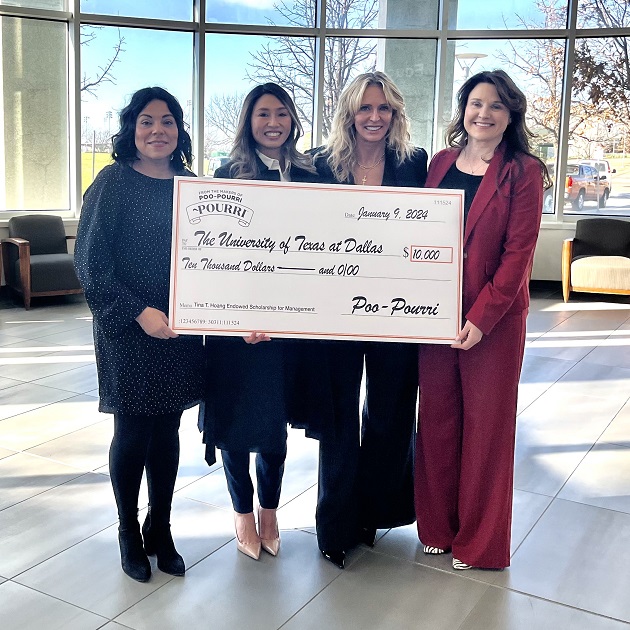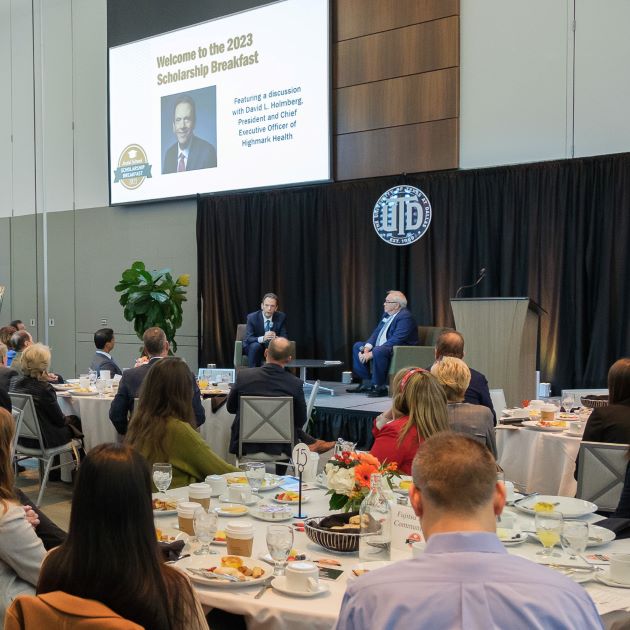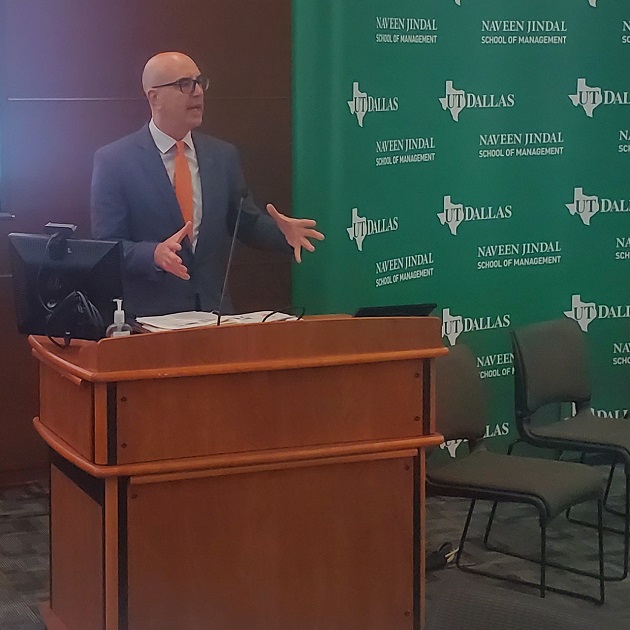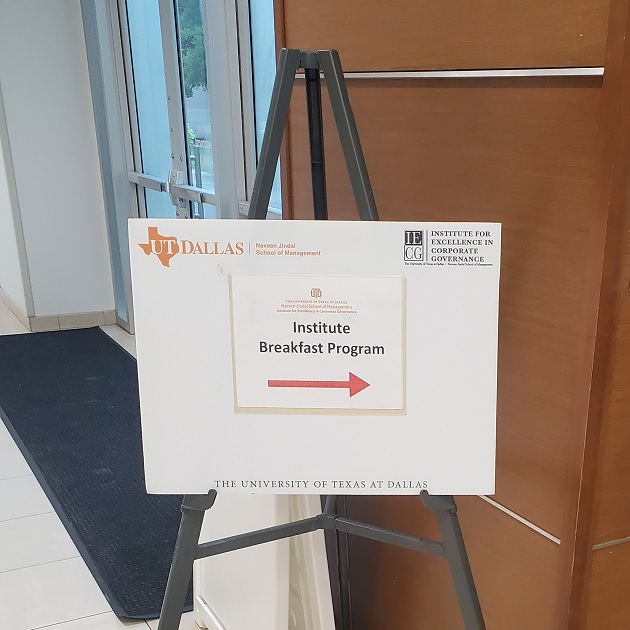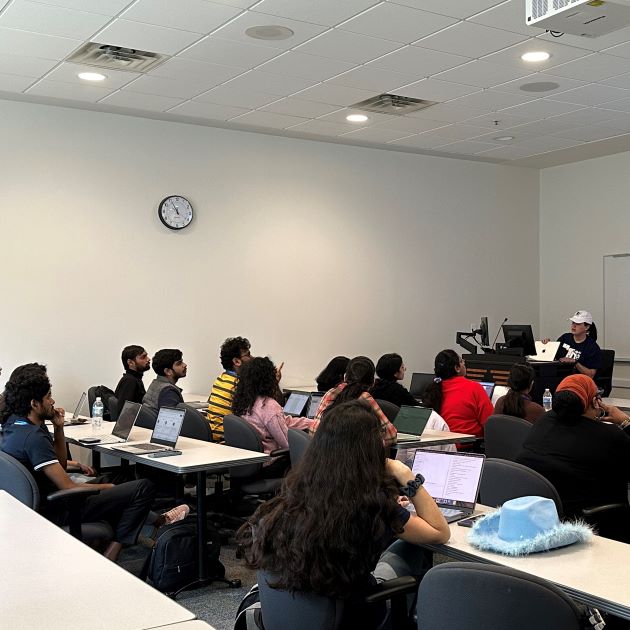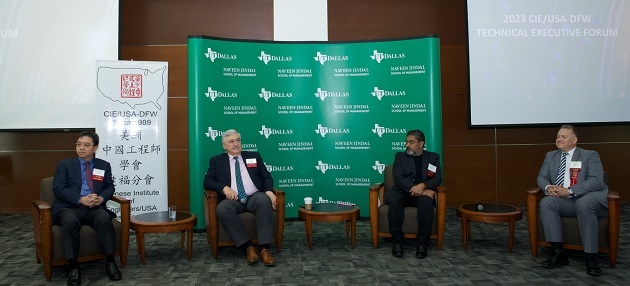
Artificial intelligence, which dominates conversations about everything from manufacturing technologies to writers’ strikes to homework assignments, drew the attention of an esteemed group of panelists Sept. 30 at The University of Texas at Dallas’ Davidson-Gundy Alumni Center.
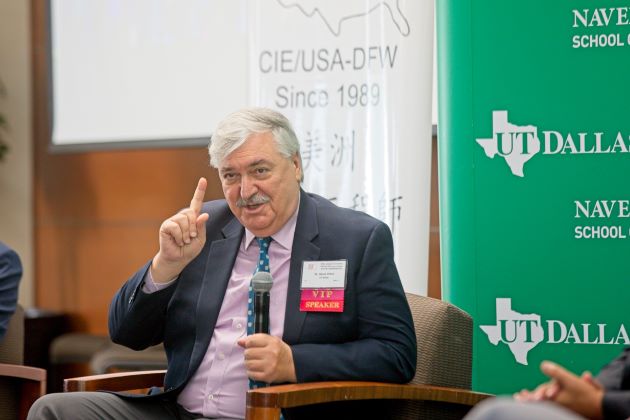
Dr. Hasan Pirkul, Caruth Chair and dean of the Naveen Jindal School of Management, was one of the featured experts at the Technical Executive Forum, a special highlight of the Chinese Institute of Engineers USA-DFW Chapter’s annual convention. The theme — “Technical Fusion — Artificial Intelligence in Action” — centered on both challenges and opportunities for AI to improve society.
Pirkul, as a longtime expert in the field, told the audience of industry and academic leaders that AI is not as new as many assume. He first began studying AI in the late 1970s.
“It was overhyped and forgotten about,” he said with a sense of amusement. “We now have everything in place to deploy the power of AI. This time around it is not hype. It is here to stay and impacting everything we do.”
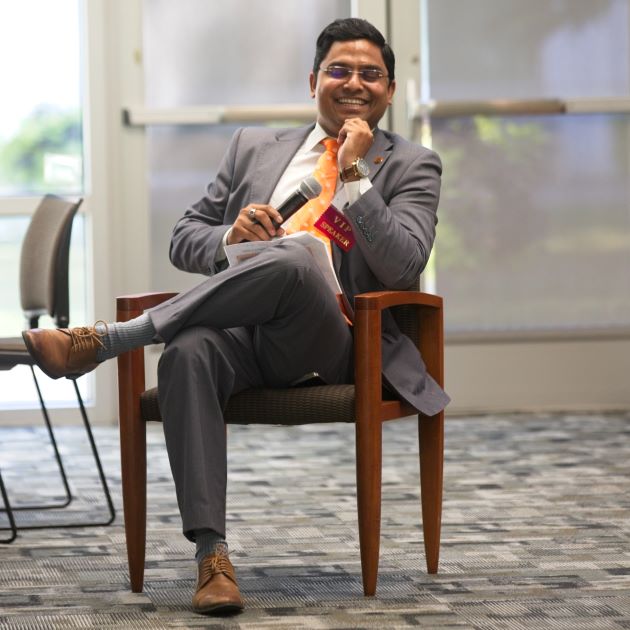
Just how pervasive AI is was underscored by the other panelists who spoke in the session. Joining Pirkul were Jose Alvarez, global head of market areas, intelligent automation, AI-Transformation for Ericsson; Panna Sharma, president, CEO and board member for Lantern Pharma, and Samuel Wong, vice president and general manager of battery management solutions for Texas Instruments, Inc. Pooya Forghani, vice president of Diodes Inc., hosted the forum. Gaurav Shekhar, assistant dean for graduate programs at the Jindal School, moderated the discussion.
All the panelists sent the clear message that AI’s power can work toward good for the world’s benefit in massive ways and in diverse industries.
Wong predicted that between now and 2035, AI will improve vehicles safer and more efficient.
“We have the unique opportunity to put the intelligence into the car to make the car safer and cheaper,” he said. “We want to make the car smarter.”
In the pharmaceutical world, AI already is improving medical treatments, according to Sharma. New therapies are being developed at increasingly rapid rates, which is especially beneficial in an aging population fighting cancer, Alzheimer’s and Parkinson’s diseases, he said.
“Being able to come up with drugs that work there is going to be very important,” he said.
Alvarez said he understood the fear of the unknown that grips many today since AI’s dynamic effects are still not fully known.
“We don’t know the power of it yet,” he said, predicting that the outcome is sure to be fascinating. “Stay in your seats, buy your tickets, get your popcorn. We don’t know what’s yet to come.”
The afternoon session was a highlight of the convention convened by CIE/USA-DFW, a local nonprofit. Founded in 1989, the organization promotes community interest in science, technology, engineering and mathematics. The national organization dates to 1917 and historically was dedicated to Chinese engineers in America, with its original name being The Chinese Institute of Engineers.
One of the most often-mentioned aspects of AI — the potential for job losses — could not be ignored by attendees who belong to a professional, career-driven organization. Pirkul understands that fear but downplays it. Mundane jobs might be replaced, while simultaneously, other jobs could be enhanced. AI could help a radiologist, for example, but will never replace a physician’s judgement.
“I think AI, going forward, in every aspect of our life is going to be there,” he said. “I don’t think it’s replacing humans. It’s making them more efficient, and it’s just a tool. I am not afraid.”

